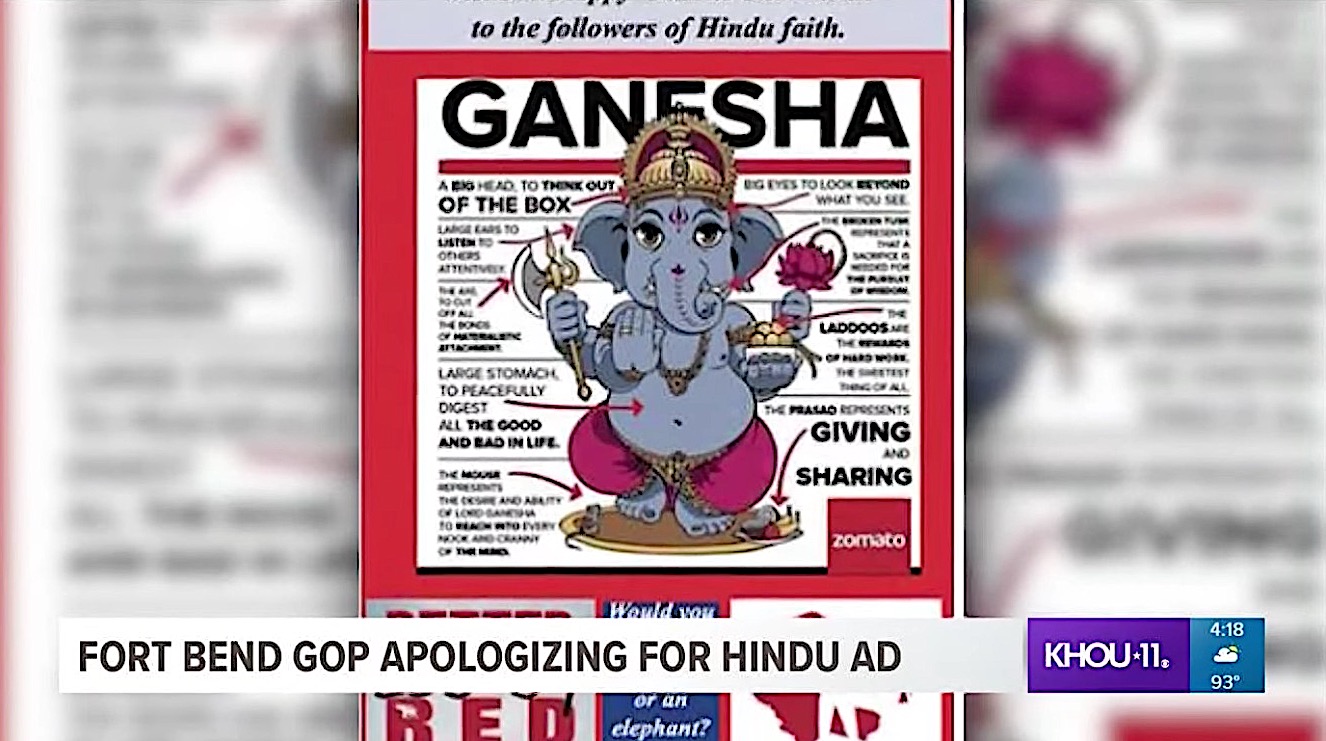Texas Republicans ask Indian-Americans celebrating festival of Ganesh if they'd 'worship a donkey or an elephant?'


A free daily email with the biggest news stories of the day – and the best features from TheWeek.com
You are now subscribed
Your newsletter sign-up was successful
The Republican Party in Fort Bend County, Texas, is apologizing for an ad it ran in an Indian-American newspaper during the festival of Ganesh Chaturthi, celebrating the birth of the elephant-headed Hindu deity Ganesaha. "Would you worship a donkey or an elephant?" the ad asked. "The choice is yours." The suburban Houston county is home to a competitive congressional race between incumbent GOP Rep. Pete Olson and Democrat Sri Preston Kulkarni; about a fifth of the 22nd Congressional District is, like Kulkarni, Asian American.
"While we appreciate the Fort Bend County GOP's attempt to reach out to Hindus on an important Hindu festival, its ad — equating Hindus' veneration of the Lord Ganesha with choosing a political party based on its animal symbol — is problematic and offensive," said Rishi Bhutada at the Hindu American Foundation. The foundation asked that the Fort Bend Republican Party "apologize for the offensive and inaccurate reference" and "not run the ad again."
"Pete agrees" that the ad "should have been more respectful," said Olson campaign manager Craig Lewellyn. "The ad was not meant to disparage Hindu customs or traditions in any way," the Fort Bend GOP said in a statement. "This ad was created with input from those of Hindu faith so that we could properly pay respect to the sacred festival. ... We offer our sincerest apologies to anyone that was offended by the ad. Obviously, that was not the intent." Peter Weber
The Week
Escape your echo chamber. Get the facts behind the news, plus analysis from multiple perspectives.

Sign up for The Week's Free Newsletters
From our morning news briefing to a weekly Good News Newsletter, get the best of The Week delivered directly to your inbox.
From our morning news briefing to a weekly Good News Newsletter, get the best of The Week delivered directly to your inbox.
A free daily email with the biggest news stories of the day – and the best features from TheWeek.com
Peter has worked as a news and culture writer and editor at The Week since the site's launch in 2008. He covers politics, world affairs, religion and cultural currents. His journalism career began as a copy editor at a financial newswire and has included editorial positions at The New York Times Magazine, Facts on File, and Oregon State University.
